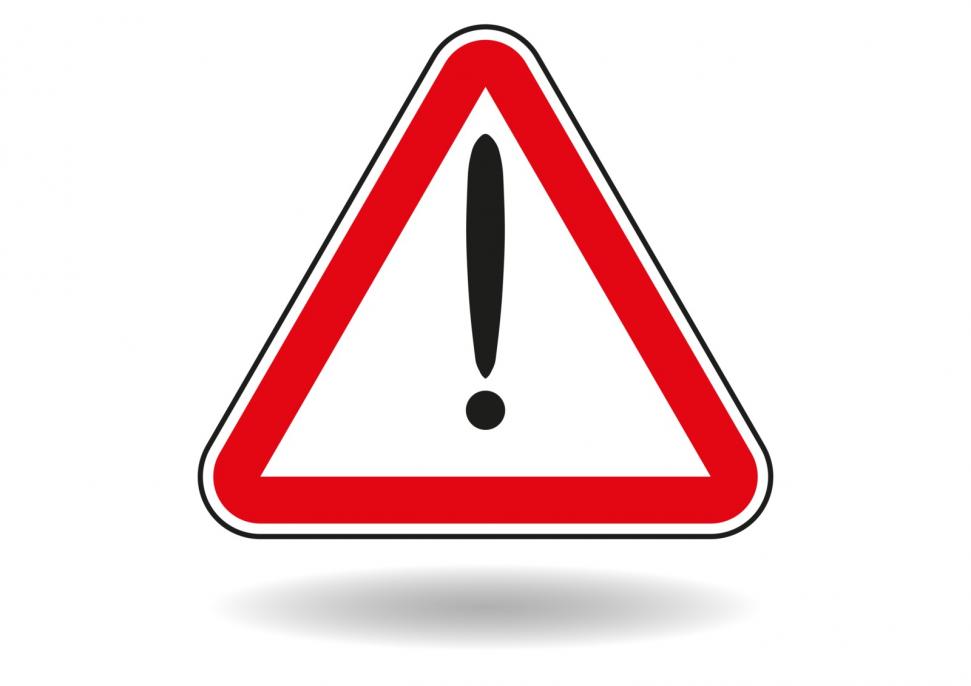My 5 Top Tips For Speaking More Fluently
 It may surprise you, but "mumbling" is one of my 5 top tips for speaking a foreign language more fluently.
It may surprise you, but "mumbling" is one of my 5 top tips for speaking a foreign language more fluently.
How fluent are you in the language you're learning? Can you read and understand spoken language pretty well? But your ability to give "quick responses in conversations" is lacking?
There's definitely a way to learn and practice to speak more naturally.
I have a very particular reason for wanting to work on speaking more fluently. It's for French. Curiously enough, it's not that my French is particularly bad, but ... Well, I talk more about it at the end of this post under the heading: My Own Project for Speaking More Fluently
1. LISTEN AND REPEAT, PUSHING YOUR BOUNDARIES
Whatever level you're at and using resources you like, start listening to phrases and sentences, and repeat them aloud whenever you can.
 Learning how to say things with some fluency is not a one-time practice. Rather, it's best to go back to working on the same phrases, sentences, or even conversations again and again. That way, your pronunciation will get closer to that of a native speaker.
Learning how to say things with some fluency is not a one-time practice. Rather, it's best to go back to working on the same phrases, sentences, or even conversations again and again. That way, your pronunciation will get closer to that of a native speaker.
Close is good. If you're learning a language as an adult, perfect native pronunciation may take much longer, or may not happen at all.
In most languages, when words are used in expressions or in a sentence, they become part of a stream of sounds. Letters are dropped, stress changes, there are contractions, etc. This has to be practiced.
It also helps to memorize short conversations and repeat them to yourself when you're in the shower, as you prepare breakfast, or while jogging, etc.
Online language programs are perfect for practicing natural, rapid speech because you can try as many times as you want. Frequent repetition is key.
2. INTERJECTIONS
 Interjections are short words, usually said at the beginning of a sentence, that express strong emotions.
Interjections are short words, usually said at the beginning of a sentence, that express strong emotions.
They can be learned together with vocabulary and practiced as part of conversations.
Common interjections in English are:
• hey
• oh
• good!
• right!
• no way!
Some common French interjections would be:
• Ouf (Whew)
• Zut ! (Darn)
• Mais/Bah oui ! (Why yes!)
• Quoi ! (What!)
• Allez ! (C'mon!)
Common Spanish interjections:
• ¡Ay! ( Oh)
• ¡Ojalà! (I hope so )
• ¡Vaya! (Wow!)
• ¡Claro! (Of course!)
And mostly in Spain:
• ¡Guay! (Cool)
• ¡Vale! (Okay!)
Common Italian interjections:
• Magari! (I wish!, If only!)
• Bravo! (Well done!)
• Dai! (Come on!, Come now!)
• Boh! (No idea!)
• Basta! (Stop!)
• Peccato! (Too bad!)
Common German interjections:
• Aha! (I get it)
• Hä? (I don't understand)
• Also... (Well...)
• Wau! (Wow!)
• Ach nee! (I knew it!)
• Klar! (Of course!)
The best way to learn to notice and use interjections in a language you're learning is to watch films or TV series. You can do this online, which also gives you the chance to repeat snippets of language aloud without annoying others.
Repeating aloud is absolutely essential for learning to say interjections. Seeing and hearing them as part of conversations puts them into context and shows you their exact meaning.
3. PAUSES AND FILLERS
Besides interjections, you can learn to add pauses and fillers to your speech.
![]() Fillers are sounds, or words and phrases that are an essential part of conversational speech, but don't have much meaning in themselves.
Fillers are sounds, or words and phrases that are an essential part of conversational speech, but don't have much meaning in themselves.
They mark a pause when someone's speaking, or a moment of hesitation, as the person is considering what to say next. They help to keep the conversation going.
Speech fillers have to be practiced, since they impact on the intonation and rhythm of spoken language.
There are three good reasons why you should learn to use fillers in the language you're learning.
For one, it'll help you navigate better through a conversation. For example, if you just can't find the word you're looking for, you won't be stuck in an awkward silence. Instead, you can use some "hesitation sounds" of a few filler words, as you think about how to reformulate or how to get onto another topic.
Secondly, it will help you keep conversational contact with the person you're speaking to. With fillers, you can keep your own part of the conversation going, or indicate interest in what the other person is saying.
Thirdly, it will make you sound much more like a native. Most native speakers of a language don't hold conversations in full, perfect sentences all the time. They hesitate often enough, break sentences off, change topics as new ideas occur to them, etc. The fillers will help you do that too, without feeling like you're stumbling.
Fillers in American English that I hear a lot in conversations are:
"uuh" "uhmm" "err" "well..." "yeah" "like" "right," or the phrase "you know."
French conversational fillers (mots de remplissage, mots bouche-trou):
"euh" "bah" "hein" "bon" "ben" "alors" "bah" "eh bien."
Spanish conversational fillers (muletillas):
"eh" "este" "pues" "bueno" "mira" "ya" "vale" "¿no?"
Italian conversational fillers (riempitivo, parole superflue):
"mm" "mh" "e(eee)" "tipo" "ecco"
German conversational fillers (Füll-Laute, Verzögerungslaute, Pausenlaute):
"äh" "ähm" "mhh" "so" "tja" "halt" "oder" "gelt"
To find YouTube videos with TV series, romantic or action films you can watch, do a search, for example, "youtube serie tv français" "youtube series tv español" "peliculas en español youtube" "peliculas completas en italiano youtube" "deutsch filme youtube komplett" - and so on.
4. LISTEN, RECORD, AND REPLAY YOU OWN VOICE
 Yes, it's hard to listen to your own recorded voice. I used to try to avoid it as well.
Yes, it's hard to listen to your own recorded voice. I used to try to avoid it as well.
But, recording and listening to your voice and comparing your pronunciation to that of a native speaker is a very powerful technique for improving.
Start with words or short phrases, then work yourself up to full sentences. You have a lot to listen for: individual sounds, rhythm, intonation, the flow of what you're saying.
In different languages, stress is used differently. Listen for it and try to imitate.
In different languages, the same letters that we have in English may have a similar sound, but are pronounced less or more distinctly or explosively.
And, when you are recording yourself, you can practice difficult word combinations, saying them faster and faster.
5. RELAX and MUMBLE
You will unlikely hear this tip from a language teacher: In conversations don't worry about mumbling some of the words, especially their endings.
In casual conversations, most native speakers don't use the enunciation of a TV announcer. Especially when they speak in a local dialect, they talk quickly, mumble, mutter, ramble, blurt out things, drop endings.
In German, "to mumble" is called "nuscheln."
In French, you'd say "marmonner."
In Spanish, it's "mascullar."
And for Italian, the equivalent seems to be "borbottare."
The huge advantage when you learn to mumble a little in a language you're learning, is that you can slide over some of the tricky grammatical parts. It's especially good for endings that are supposed to change in different grammatical context. A neutral mumble can easily suggest the right ending.
All my reading - dozens and dozens of classic and modern novels in college and later on, and more recently, all of the Harry Potter novels in French - did not make me conversationally fluent in French. For sure, I have all the vocabulary that I need, but now I must practice the skill of speaking fluently.
I am fluent in Dutch, though I've done very little reading in it. What I have done for years and years is speak with others and imitate their natural conversational speech.
Repeating normal and fast-speed sentences, adding interjections, pauses and fillers, and finally recording yourself and playing back your voice - all these together are bound to increase your ability to give "quick responses" in a conversation and become more fluent.
MY OWN PROJECT FOR SPEAKING MORE FLUENTLY
What I need to work on is relaxing when I speak so that I don't over-pronounce each individual word. Not just in French, but in all languages that I speak and am learning.
What's wrong with my French? Not that much really, except ... Well, let me back up a little. I learned French in a classroom setting: in grades 4 & 5 in the Netherlands, then from grades 6 on through grade 11 in Canada, followed by a French Honors university program.
At the end of my studies, I had great reading skills, a large vocabulary, and adequate writing skills. But my listening skills were lacking. I could understand the news (local French Radio) and formal lectures in French, but I could not follow fast conversational French. I also could not hold my own in natural, fast conversations with French speakers.
Later, when we started to regularly visit family in French-speaking Fribourg, Switzerland, my listening and speaking skills had already improved a lot. But even now, when I participate in conversations, my contributions are nicely constructed sentences, painstakingly pronounced. I resemble an announcer, who interrupts a group of people who are pleasantly chatting away.
My goal for further improvement is to be ready for our visit to Switzerland next year. With a French friend and with my husband I'm now practicing to not over-pronounce, to speak faster, to add interjections and fillers, and to “mumble” here and there.
